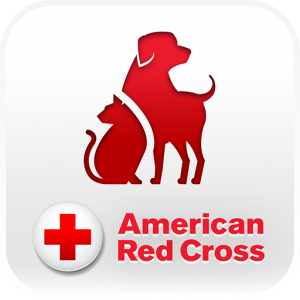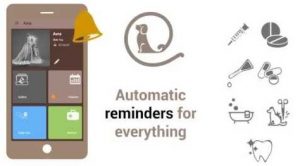Posts in Category: Exotics
Canna-Pet for Pets
Harmony Animal Hospital has carried Canne-Pet since June 2016 and has had great success with this over the counter, safe product. Below is some information about Canna-Pet and its benefits. If you have any questions please don’t hesitate to call, email or text us.
Canna-Pet® Quick Facts
Canna-Pet is…
- An organic, whole-plant product, developed from the ground-up specifically for pets
- Perfectly safe to use alongside any medications, supplements, or with any special diets
- Cannabinoid nutrition that is Non-GMO, vegan, free of animal products, free of preservatives
- Offering fast acting liquids and capsules suitable for any animal and treats for dogs
- The first of its kind
What makes Canna-Pet Different?
- Veterinarian recommended and covered by major pet insurers
- Offers a 30 day money back satisfaction guarantee
- Unique abundance of phytochemicals, with over two dozen cannabinoids and terpenes beyond just CBD
- Studied by major universities and major veterinary journals
- Much higher bioavailability than other CBD products
- 10-15X the absorption
- 15X the effective CBD reaching the pets ECS

Canna-Pet’s cannabinoid (CBD) nutrition is made with Industrial Hemp
Canna-Pet products are:
- Non-psychoactive
- Are not medical marijuana
- Made with organic and non-gmo hemp
- Legal without a prescription
- Formulated in USA phytochemistry laboratories
Who can use Canna-Pet products?
- Dogs
- Cats
- Horses
- Other
What do customers use Canna-Pet for?
- Anxiety due to noise phobia (example: fireworks), separation anxiety, etc.
- Arthritis
- Allergies
- Cancer
- Digestive Issues
- Seizures
- Inflammation
- Joint & Mobility Issues
- Pain
- Homeostasis
- And more!
Must Have Pet Apps
How many apps do you have on your phone? How many apps do you have that can save your pet’s life or keep you organized about what your pet needs and has have? Below are some that we feel are must haves.
The American Red Cross has some wonderful apps and our favorite one is their Pet First Aid app. Be prepared to help your furry friends with veterinary advice for everyday emergencies right on your phone.
The ASPCA Animal Poison Control Center (APCC) free mobile app provides a wealth of knowledge in the palm of your hand. With quick access to potentially life-saving information and our hotline 24/7/365, the ASPCA APCC app helps keep your pet safe year-round. The ASPCA is dedicated to helping you and your pet, and this is another way we they able to do just that.
The ASPCA also has a Pet Safety App for lost pets, distaster preparation and emergency alerts. This app shows pet parents exactly what to do in case of a natural disaster. It also allows pet owners to store vital medical records, and provides information on making life-saving decisions during natural disasters
Petfinder is one of the best places to find your next best friend. You can search by location, size of animal, hair coat, breed, location, etc. And at the end, you have saved someone’s life!
11Pets Pet Care is a wonderful app for pet parents that want to stay organized with your pet care. It can automatically remind you of medications that need to be given, baths to be given, medical history, allergies, etc. Everything in one place. Very handy, especially for your next visit to the vet.
Keeping Rabbits & Guinea Pigs as Pets
Keeping Rabbits & Guinea Pigs as Pets
by Dr Heather Johnston
Rabbits (Lagomorphs) and Guinea Pigs (Cavies) are smaller pets with lots of personality. Although rabbits tend to be more solitary and G. Pigs more social within their own species both of these pets can make excellent family pets. Both species can be litter box trained and because of this are frequently given free roam in a . Because of the natural curiosity and urge to chew we recommend that your pet be confined when not being immediately supervised. Although it is wonderful to allow your pet so much opportunity for exercise, there are many life threatening and costly dangers in our homes. To keep it safe we recommend confining your rabbit or G. pig to a small pet proofed room or a suitable cage while they are not being supervised. Rabbits in particular like to chew on electric cords often with deadly outcomes.
For most pets a suitable cage is constructed of a sheet metal or hard plastic tray on the bottom with open wire bars or mesh on the sides and top. If you must keep your pet on a wire grate, the feet must be checked daily for injuries or signs of wear from the wire. Most often it is better to keep your pet on shavings (aspen, pine, or paper. DO NOT USE CEDAR as it can aggravate respiratory conditions). Because most animals will flip or quickly soil water bowls, water bottles are more practical. Finally because rabbits and G. pigs in the wild were prey animals, you pet should have an area to hide in. Do not forget to clean this area daily as humidity will build up more quickly due to decreased airflow. This can lead to frequent urinary tract infections, bladder stones, or skin infections.
Diet
Two of the most common health problems in these pets are obesity and dental disease. Both can be prevented or controlled through proper diet. Feeding hay as a large portion of the diet helps to wear teeth appropriately and provides a low calorie and high fiber diet to support healthy digestion. We recommend the following guidelines for your pet rabbit or g. pig:
75% HAY: timothy or mixed/orchard grass. Alfalfa is ok for growing animals but is too high in calcium and protein for most adults.
15% PELLET (specific for the species) timothy is preferred to alfalfa.
10% TREATS: including fruits, vegetables, and seeds or nuts.
- pigs must receive vitamin C from their diet because their body is unable to make this vitamin. They must be feed pellet designed for g. pigs (vitamin C added). We also recommend supplementing your g. pig with 125 mg of vitamin C daily (½ of pediatric vitamin C chewable tablet daily).
Health Concerns
Because of the high risk of false pregnancy and uterine cancer we recommend spaying your female rabbit. This can be done anytime after four months of age. Spaying female and castrating male rabbits frequently decreases undesirable hormone related behavior such as urine marking, mounting, and some biting. Unfortunately these procedures do not always influence rabbit fighting with other rabbits. Because g. pigs are often housed in groups males are routinely castrated if they are to be kept with females. This can be done anytime after four months. Female g. pigs should never be bred for the first time after they are seven months old because their pelvis becomes too rigid to deliver the large giglets (baby g. pigs) safely. If pregnancy occurs after seven months the g. pig will need a cesarean section to deliver the giglets.
Both rabbits and g. pigs are prone to develop urinary/bladder stones because of the large amount of calcium normally found in their urine. If an animal is seen straining and not passing urine or feces please contact your veterinarian immediately as this is a medical emergency.
Because of the unique digestive system found in rabbits and g. pigs avoid giving them milk products (except yogurt sometimes used for its live bacterial cultures) and large amounts of nuts, seeds and foods high in sugars). These foods can cause bloating which can be a life threatening condition. Owners should recognize bloated animal. An animal suffering from bloat will have a distended stomach (often bulging behind the rib cage), will sit with its neck and head extended up, will push its elbows away from its body (this helps the animal breath easier), and will often teeth grind. It maybe helpful to have pediatric simethacone (a brand name such as gas EX) in your first aid kit to give to a bloating animal after talking to your veterinarian.
A final health concern for both species is heat stroke. Because neither animal sweat and both animals have large abdomens compared to their surface area they have more trouble cooling themselves. High heat and humidity of south Florida can be difficult for these species to deal with. If your pet accidentally becomes over heated remove them to cool area immediately. If they are showing signs of loss of consciousness or bloating go immediately to your veterinarian.
More Information
Owning rabbits and guinea pigs can be a rewarding experience with a little special care on your part. Following is a list of helpful websites:
www.rabbit.org The American House Rabbit Society
www.acbaonline.com The American Cavy Breeders Association
www.guinealynx.info/main.html Guinea Health Linx on line
www.oxbowhay.com Oxbow Company
www.netvet.wustl.edu/rabbits.htm a list of many rabbit sites







